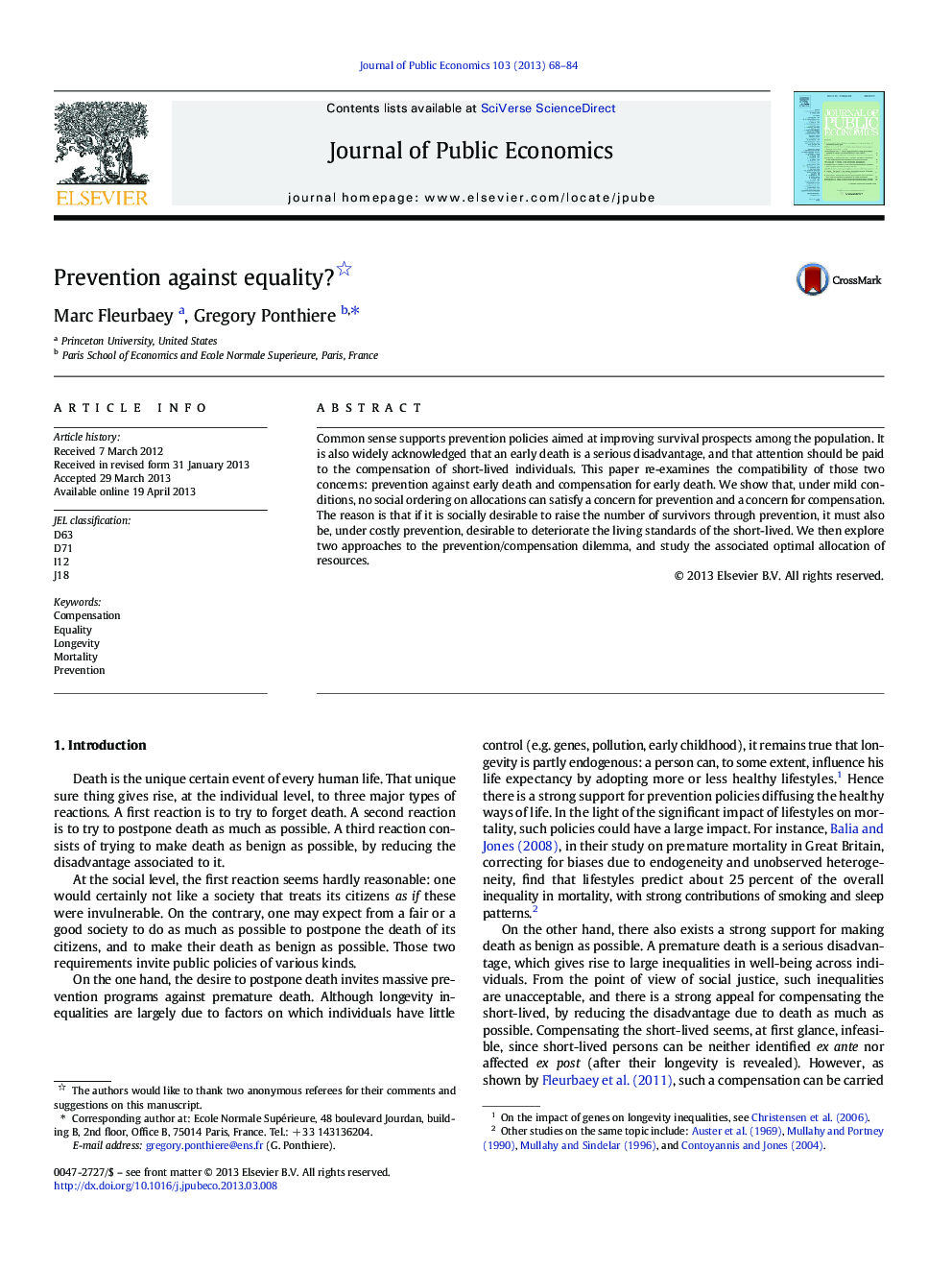| Article ID | Journal | Published Year | Pages | File Type |
|---|---|---|---|---|
| 969841 | Journal of Public Economics | 2013 | 17 Pages |
•We develop a model with risky lifetime, where prevention raises survival chances.•Individuals have heterogeneous preferences on consumption and prevention profiles.•We study whether a social objective can satisfy prevention and compensation concerns.•It is shown that prevention and compensation concerns are logically incompatible.•We then explore two approaches to the compensation/prevention dilemma.
Common sense supports prevention policies aimed at improving survival prospects among the population. It is also widely acknowledged that an early death is a serious disadvantage, and that attention should be paid to the compensation of short-lived individuals. This paper re-examines the compatibility of those two concerns: prevention against early death and compensation for early death. We show that, under mild conditions, no social ordering on allocations can satisfy a concern for prevention and a concern for compensation. The reason is that if it is socially desirable to raise the number of survivors through prevention, it must also be, under costly prevention, desirable to deteriorate the living standards of the short-lived. We then explore two approaches to the prevention/compensation dilemma, and study the associated optimal allocation of resources.
